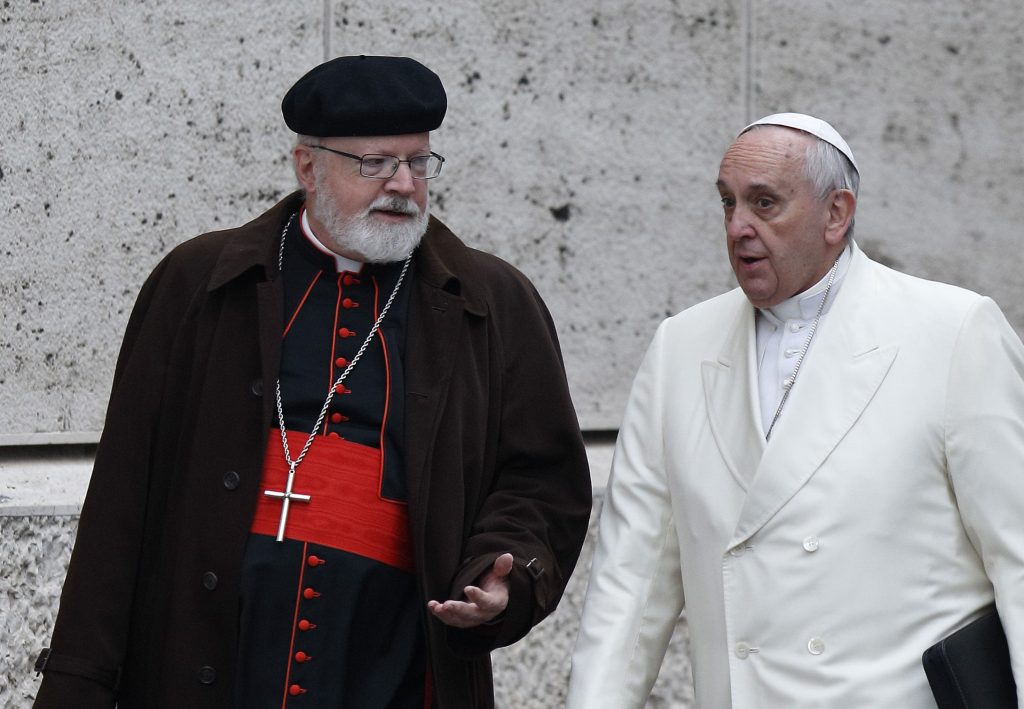The Pontifical Commission for the Protection of Minors, established by Pope Francis in 2014 to advise him on policies to combat sexual abuse, has long struggled to tell the world its story. Against the backdrop of spectacular failures and controversy on the Church’s anti-sex abuse front, steady lower-level success doesn’t quite cut through the noise.
Naturally, the commission has had some stumbles and setbacks.
Much has been made of the fact that two former members of the body who are also survivors of sexual abuse, Peter Saunders of the U.K. and Marie Collins of Ireland, both departed under different sets of circumstances, and both later expressed frustration with the pace of change and perceived internal resistance.
Both have also been critical of what they see as missteps by Pope Francis, including his handling of the accusations that Bishop John Barros engaged in a cover-up of crimes by Chile’s most notorious abuser priest, Father Fernando Karadima.
Likewise, much has been made of the fact that the pope allowed the membership of the commission to “lapse” in December, and only got around to appointing new members on Feb. 17.
It’s fair to point out the delay is basically business as usual in the Vatican, but critics will say that’s precisely the point — in the struggle against child sexual abuse, “business as usual” just doesn’t cut it.
Still, there’s a strong argument to be made that over the almost four years of its existence, the commission has quietly had a substantive impact on making the Catholic Church a safer place for children across the world.
For one thing, commission members have crisscrossed the planet delivering training seminars on abuse prevention, detection and response for Church leaders, including in regions of the world that were once resistant to accepting even the idea that child abuse was a serious risk in the Church.
As time has gone on, the number and range of those invitations has continued to grow, suggesting an increasing awareness and receptivity to the commission’s leadership.
Further, there are indications that the commission’s example is having a leavening effect on local churches around the world.
In 2016, for instance, Cardinal Oswald Gracias of Mumbai, India — a member of the pope’s “C9” council of cardinal advisers, and the president of the Indian bishops’ conference — set up his own child protection panel in Mumbai, telling Crux that his goal was to “bring the spirit of the commission” to the archdiocese.
The commission has also reviewed anti-abuse guidelines in countries that already have them, and prodded and assisted countries that don’t into producing them, in part by developing a set of guidelines to serve as a basis for local adaptation.
Admirers believe that the Pontifical Commission for the Protection of Minors has helped foster a growing culture of child safety in the Church, often without a great deal of fanfare, but with real, if imperfect and incomplete, results.
The appointments made Feb. 17 reflect, and arguably augment, that track record.
Nine new members were unveiled, including Teresa Kettelkam, a former Illinois state police colonel and head of the U.S. Bishops’ Child Protection Office from 2005 to 2011, who was working for the commission in Rome but has now returned to the United States. She’s widely recognized as a leading reform voice in child protection issues, and will remain part of the commission’s mix.
Msgr. Robert Oliver, another American and a former aide to Boston Cardinal Sean O’Malley, who was confirmed as president of the commission, remains a full member as well as the director of its office.
In other words, the appointments were a broad thumbs-up from the pope for the work of the commission, while also widening its global range with members from Ethiopia, India, Tonga and Brazil, as well as Australia, the U.K. and the States.
Cardinal O’Malley stressed the basic affirmation delivered by the pontiff.
“The Holy Father has ensured continuity in the work of our commission, which is to assist local churches throughout the world in their efforts to safeguard all children, young people and vulnerable adults from harm,” he said.
Perhaps the quiet progress being logged by the commission, and the continuity Pope Francis has ensured for that progress, may not be enough to crack the headlines, at least for now.
If history does judge the Church’s efforts at recovery a success, however, the appointments Feb. 17 may go down as one of those small moments in which the tectonic plates shifted once more in the right direction.

